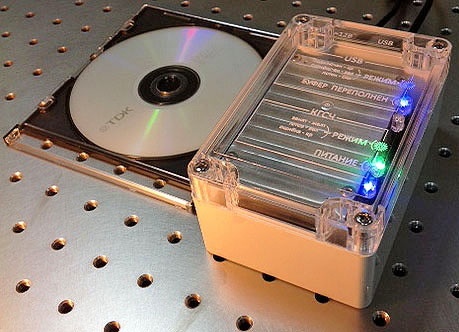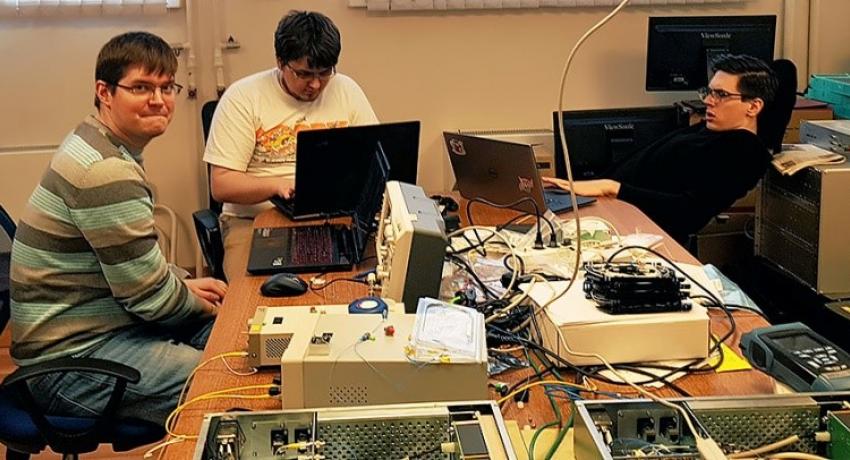Master's program "Applied Quantum Communication"
The main objective of the master's program is to train specialists in quantum key distribution and quantum communication – a young and actively developing area of modern quantum technologies.
Currently, quantum technologies are receiving significant attention since the use of quantum objects for such practical applications as computation, modeling of large systems and cryptography, allows us to fundamentally go beyond the traditional classical understanding of these problems. The most established area, which has already demonstrated its advantages in practice, is quantum cryptography – the only way to exchange secret keys that unconditionally guarantees their secrecy.
Quantum cryptography is inherently very interdisciplinary: it combines both the profound use of quantum mechanics and advanced mathematics with information theory and the need to apply many engineering skills from the field of optical data transmission. All this needs to be known in sufficient volume in order not just to copy someone's ideas but to generate new ones and put them into practice. In this regard, the development team at our Centre is very interested in talented and versatile educated students. Since both the direction itself and this master's program are very young, if desired, everyone who successfully completed this program can be closely involved in developing practical quantum cryptography systems, which are currently actively entering the competitive market of high-tech products.
Within the program's framework, both the issues of classical information theory and methods of data transmission, and the study of quantum theory in the required volume will be considered. The first part will include the issues of information coding and error correction, classical cryptography, the basics of digital communication systems, some aspects of modern methods of developing digital electronic devices. The second part is devoted to the basics of quantum optics, quantum technologies in general, the physical foundations of quantum cryptography, and the study of known quantum key distribution protocols. We will also consider in detail such related issues as random number generation, traditional cryptography that is resistant to attacks on a quantum computer ("post-quantum cryptography"), etc.

Quantum random number generator.
